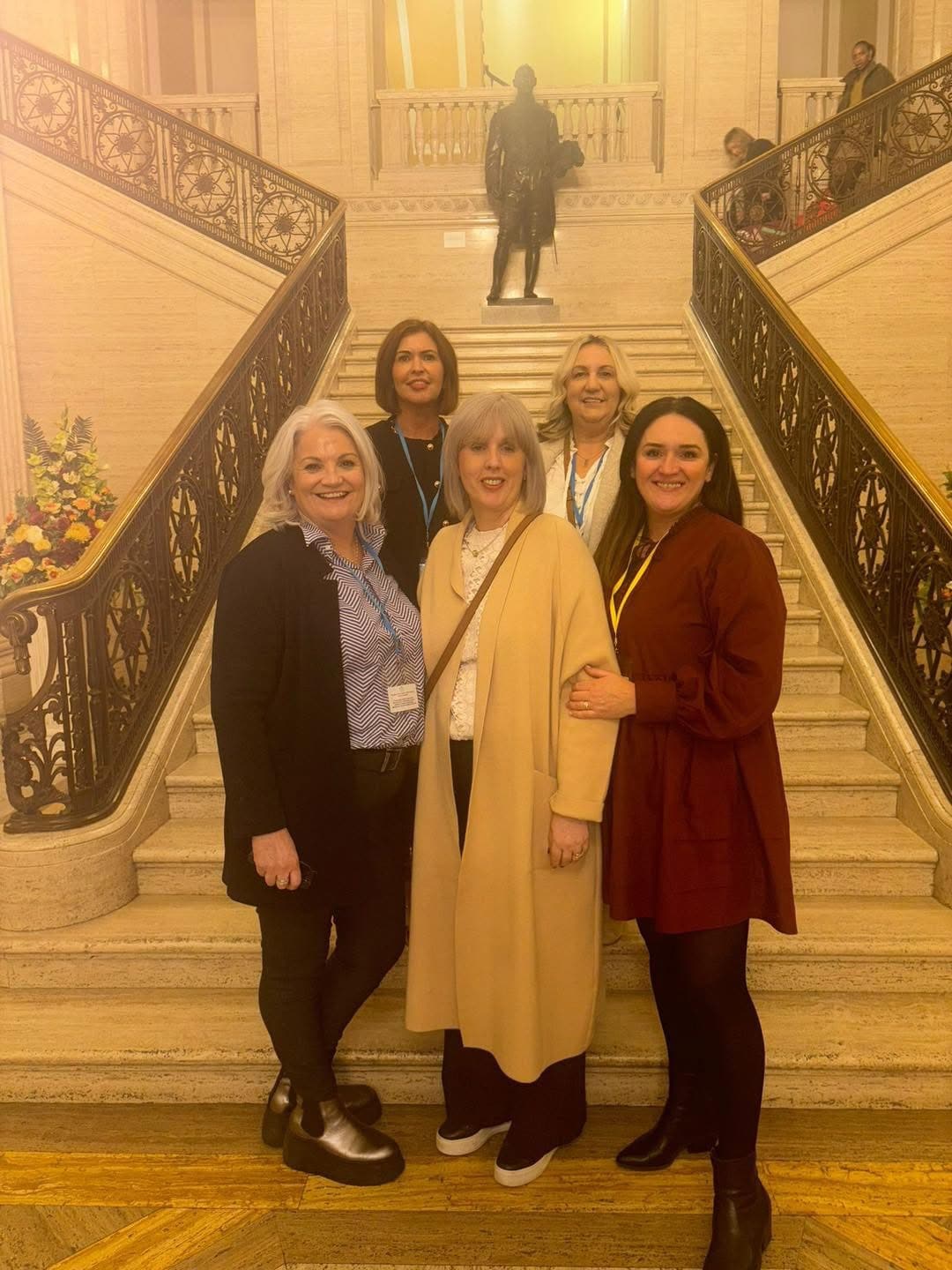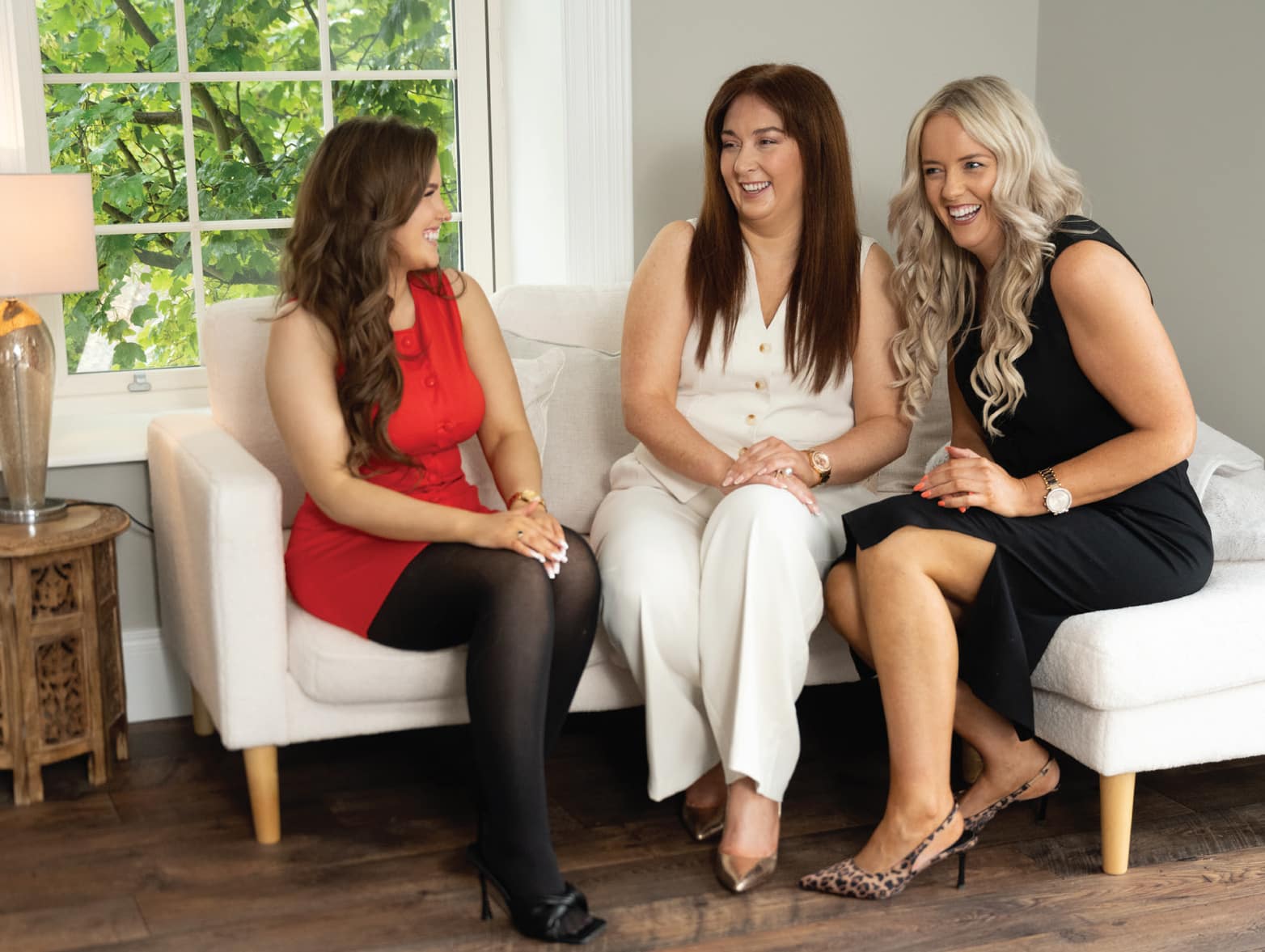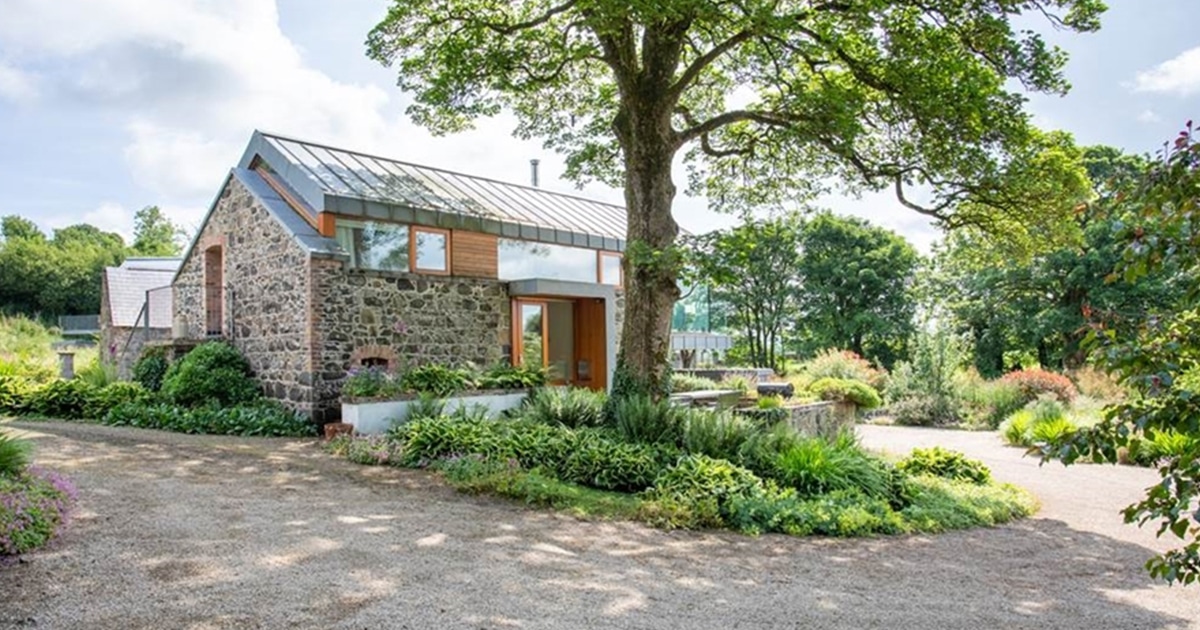THE DERRY WOMEN WHO WON’T SUFFER IN SILENCE

Meet the Derry women spearheading a campaign for better menopause services in the North West, including a specialised clinic, and who will be rolling out six-week programmes early this year with a focus on education, wellbeing, treatments and tips.
By Maureen Coleman
When Bronagh McMenamin put out a social media post urging a community response to help women in Derry struggling with perimenopausal and menopausal symptoms, she had no idea that the seed she’d just sown would take on a life of its own and grow into a huge campaign.
The Creggan-born mum, who lives in Foyle Springs where she cares for her disabled son, was frustrated and fed up dealing with ongoing bladder problems and running back and forth to her doctor’s surgery for yet another course of antibiotics.
Listening to a Mel Robbins’ podcast about the menopause, the science behind the cessation of periods and how the decrease of oestrogen and progesterone led to a litany of symptoms, Bronagh realised she needed to educate herself more.
After reaching out for help, she was given a HRT patch but when it didn’t agree with her, she wasn’t offered an alternative or a follow-up appointment. Realising there was no specialist menopause clinic in Derry or a designated menopause nurse to guide her, Bronagh decided to go private and see a female gynaecologist, who diagnosed a bladder prolapse and a new form of hormone treatment.
It was then Bronagh took to Instagram to post about the need for more specialised menopause care and support for the women of Derry. This call-out led to a Menopause and Me event at the Guildhall last October; a collaboration of local voluntary and community groups including St Columb’s Park House, Dove House Meenan, Foyle Network Foundation and the Bogside and Brandywell Health Forum. Around 300 women attended the event, which marked the start of a push for a menopause clinic in Derry.
“I was in a lot of pain around Christmas two years ago and over a three-week period, had to go to the out of hours doctor’s four times,” recalls Bronagh.
“At one stage, the pain was so bad I just dropped the hoover and went to the surgery but had to wait to be seen by a female doctor, who deals with gynae issues but isn’t a specialist.
“In the end I went private as I was lucky enough that my husband has insurance. I was seen by a fabulous female gynaecologist who told me I had a bladder prolapse.
“There are so many women in this city suffering in silence with perimenopausal and menopausal symptoms and I realised that we badly needed specialist services to help us cope with the changes going on.”
Following her social media post, Bronagh was contacted by women from several local community groups, including Aisling Hutton from the Bogside and Brandywell Health Forum. Aisling was alarmed to hear that there were no specialist menopause services in the Derry and Strabane areas and that there was no designated nurse to help women navigate the wide range of physical and emotional symptoms associated with the menopause.
“We have nowhere to just walk into and tell what is happening or what we’re going through,” says Aisling.
“I was down seeing a nurse practitioner about something unrelated and just happened to mention the menopause and asked if she’d been offered any specialist training on the subject. She hadn’t.
“One gynaecologist at Altnagelvin Hospital, Dr Niamh Doherty, is putting herself through training, which is great. But we really need a menopause clinic.
“We’ve heard of women being referred to gynae who say they’ve never been so relieved to get there but it’s two different things really. A gynae referral isn’t a referral to a menopause clinic.
“A holistic approach is needed because menopause doesn’t just bring physical symptoms, but emotional as well.”
The event at the Guildhall, hosted by the Mayor, Councillor Lilian Seenoi Barr, was a pivotal moment in the campaign for a menopause clinic. Supported by local pharmacy MediCare and with funding from several local companies, the attendees listened to a series of talks on everything from HRT to healthy supplements, workouts to nutrition. There wasn’t an area of menopausal health that wasn’t discussed and dissected, and the guests went away armed with more knowledge about what they were facing.
A second gynaecologist, Dr Sandra McNeill, also threw her weight behind the campaign. She is currently working with Derry Well Woman to facilitate a monthly menopause programme and is helping Bronagh, Aisling and the others devise their own six-week programmes, which will be rolled out this month and next. The programmes will be held in the Cityside, the Waterside and Strabane and are aimed at providing women with valuable information, one-to-one support and practical tips on nutrition and wellbeing. The last two weeks will focus on the importance of self-care, relaxation, sleep hygiene and ways to deal with stress.
“We’re not asking for a clinic in every housing estate in the city, but we do feel there should be one in every county,” points out Bronagh, referencing the dedicated women’s health hubs currently being rolled out across England as part of its Women’s Health Strategy, launched in 2022.
“Community groups, voluntary groups and primary care all need to work together in a cohesive approach,” adds Aisling.
“Women’s health as a whole, not just the menopause, needs to be looked at collectively.
“Let’s face it, if the mother ship goes down, the whole thing goes down.”
The various representatives of the groups involved in the Guildhall event, along with the driving force behind it all, Bronagh, attended the launch of a Listening exercise in Stormont in November. The Listening exercise is a programme of research to identify priorities for women’s health in the North, including the development of a Women’s Health Strategy that prioritises the health of women across their lifespan.
The women also spoke to Health Minister Mike Nesbitt who told them he would devise an action plan if they ‘brought him outcomes’ – evidence-based material. Bronagh and Aisling are confident their programmes and the research carried out by Dr Sandra McNeill will provide the necessary evidence for the funding for such an action plan.
In her other role as a councillor, Aisling proposed at a meeting of Derry City and Strabane District Council that it works with community, statutory and private sectors to identify menopause services, which will be compiled in a directory for women seeking support.
Additionally, it was agreed that council would write to the Western Health and Social Care Trust, the Northern Ireland Executive and the Public Health Agency to highlight the lack of a menopause clinic in the North West.
The multipronged campaign is now well and truly underway, with the women saying they are building an ‘army’ to fight for better services for those struggling with hot flashes, night sweats, sleep disturbances, anxiety, depression, brain fog and a host of other symptoms.
Crediting Bronagh for sparking the push, Aisling says: “Thanks to her social media post, we’ve been able to apply for funding and grow these programmes.”
Bronagh concludes: “This idea I had has now taken root and grown into something bigger. We’re a collective.
“What started out as ‘me’ is now ‘we’ and we’re going to keep going until we get what we need.”










